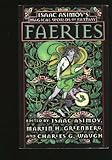 Meet Dieck Wustapha, a simple young farm boy who likes to play his little flute but really isn't very good (he's really bad, actually). His life is charmingly simple until he has the bad luck to get possessed by dark magic. Now his flute playing is eerily wonderful, and he's become one of the most popular lads in his village, Little Irkesome. After charming everyone and everything in Little Irkesome, he grows bored and starts to travel around Illmoor, looking for something more exciting to do with his talents.
Meet Dieck Wustapha, a simple young farm boy who likes to play his little flute but really isn't very good (he's really bad, actually). His life is charmingly simple until he has the bad luck to get possessed by dark magic. Now his flute playing is eerily wonderful, and he's become one of the most popular lads in his village, Little Irkesome. After charming everyone and everything in Little Irkesome, he grows bored and starts to travel around Illmoor, looking for something more exciting to do with his talents.
In Dullitch, the capital city, things are not going well. The entire city has been infested with rats, and no one can figure out how to get rid of them. Duke Modeset is at a loss. The chairman of the council (who used to be a wizard, but don't tell anyone), Tambor Forestall hires some mercenaries to get the job done.
Two mercenaries who respond are known as Groan Teethgrit (giant and bald) and Gordo Goldeaxe (one-eyed dwarf with an axe). Another person who hears about the ratastrophe catastrophe is Diek, and he figures he could charm all the rats easy-peasy with his flute.
Diek is the first to finish the task by leading all the rats to a jetty and drowning them all. But when he goes to collect the reward, he finds that Duke Modeset and Dullitch are, in fact, broke. Furious at being double-crossed, Diek steals all the children of Dullitch, and disappears into the mountains with them. Now it's up to Tambor, Groan, and Gordo to rescue them.
I didn't realize this was a Pied Piper retelling until Diek started charming all the rats. Yeah, I'm a little slow. But I'd actually been looking for a good Pied Piper retelling because that's one of my favorite fairytales and I've never read a good retelling of it. Until now.
While The Ratastrophe Catastrophe may not be a dark, edgy Pied Piper story (which I admit is what I'd been looking for), it's still one of the most amazing and fun fantasy books I've read in a long time. You don't realize Diek is actually a villain for a long time (unless of course you read the back of the book...), and the true heroes turn out to be an ex-wizard (wizardry was outlawed in Illmoor) and two mercenaries. But all the characters are connected in some way or another that makes it all come together in an amazing way, and all of them are incredibly awesome.
I'd recommend this book to just about anyone (it's one of those books where I don't care if you even like fantasy or one-eyed dwarves, you just have to read this), but especially fairytale and fantasy lovers, and maybe fans of Terry Pratchett. It's kind of like his books but for a younger audience.
There are currently five more books in the Illmoor Chronicles, the second book being The Yowler Foul-Up. I can't wait to get my hands on all of them. It looks like that's all there's going to be of Illmoor, but David Lee Stone also wrote a stand-alone novel entitled Davey Swag (he actually wrote this under the name of David Grimstone), which is hopefully just as awesome as Illmoor.
--Persy


